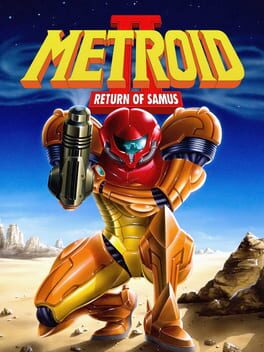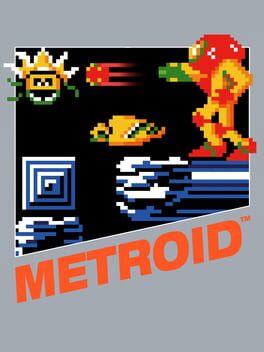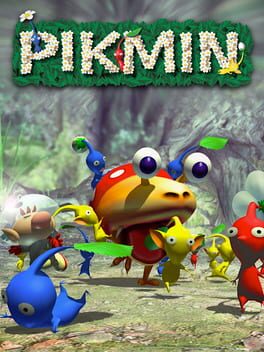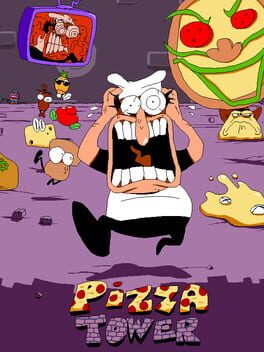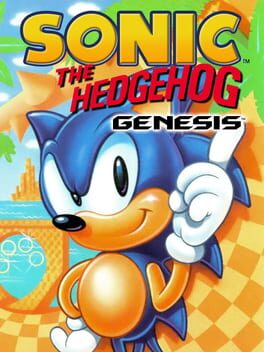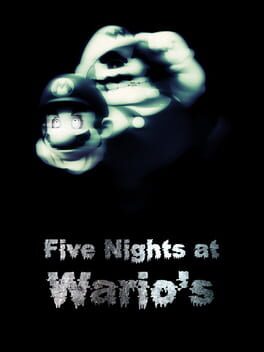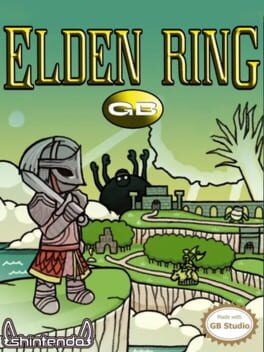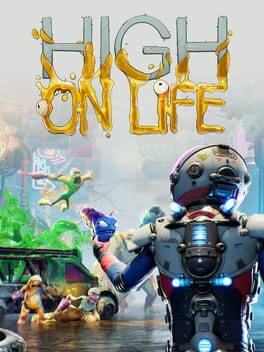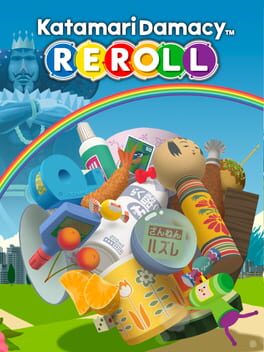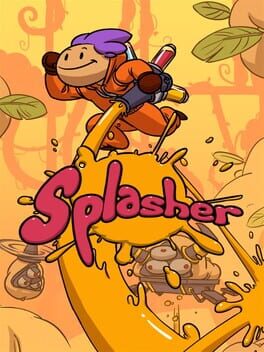Nightblade
The original metroid on nes isn't the most flattering game out there, it has its rough edges but I can ultimately appreciate what it goes for and it's place in gaming history. So, it was a shock to my system that the metroid game on gameboy (essentially a portable nes) was actually a considerable step up from its console counterpart.
I know its odd to call a gameboy game atmospheric but Metroid II finds a way. The faint hints of music sounding like the organic life of this alien planet, the fantastic spritework and art direction, and the black and grey color pallet of the gameboy pocket really elevate the feeling of exploring deeper and deeper into the depths of an underground cave.
This is all just to say that Metroid II is a survival horror game. Encountering a metroid borders on being a jumpscare, with the mutated aliens making their presence known with their harsh and sudden theme contrasting brightly with the atmospheric tunes prior. The metoids' freakish mutations as you delve further into the caves of SR388 also don't let up and can kill you at a moments notice if you aren't on your toes. Just like a good ol' classic survival horror!
This may be one of the most linear metroid games, if not the most linear. However it's linearity encourages exploration as you explore left behind ancient ruins and hunt down every single last metroid hiding in the caves. It feels like every single nook and cranny rewards your exploration with some goodies. The constant stream of abilities you gain all feel meaningful towards further expanding your moveset, and are fun to experiment and play around with. The exploration ties beautifully with the gameplay, which is a significant step from Metroid I. Finally being able to crouch and shoot in more direction feels like a relative breath of fresh air combined with the tight movement.
Overall, Metroid II is a classic example on how you shouldn't judge a book by its cover. "How good can it really be? It's just a gameboy game after all," I foolishly thought before playing. But Metroid II proves to be a great time throughout, despite some annoying Metroid moments™ here and there.
I know its odd to call a gameboy game atmospheric but Metroid II finds a way. The faint hints of music sounding like the organic life of this alien planet, the fantastic spritework and art direction, and the black and grey color pallet of the gameboy pocket really elevate the feeling of exploring deeper and deeper into the depths of an underground cave.
This is all just to say that Metroid II is a survival horror game. Encountering a metroid borders on being a jumpscare, with the mutated aliens making their presence known with their harsh and sudden theme contrasting brightly with the atmospheric tunes prior. The metoids' freakish mutations as you delve further into the caves of SR388 also don't let up and can kill you at a moments notice if you aren't on your toes. Just like a good ol' classic survival horror!
This may be one of the most linear metroid games, if not the most linear. However it's linearity encourages exploration as you explore left behind ancient ruins and hunt down every single last metroid hiding in the caves. It feels like every single nook and cranny rewards your exploration with some goodies. The constant stream of abilities you gain all feel meaningful towards further expanding your moveset, and are fun to experiment and play around with. The exploration ties beautifully with the gameplay, which is a significant step from Metroid I. Finally being able to crouch and shoot in more direction feels like a relative breath of fresh air combined with the tight movement.
Overall, Metroid II is a classic example on how you shouldn't judge a book by its cover. "How good can it really be? It's just a gameboy game after all," I foolishly thought before playing. But Metroid II proves to be a great time throughout, despite some annoying Metroid moments™ here and there.
1986
1990
2001
2023
It feels so gratifying to play a game that wears its inspirations on its sleeve yet feels so confident with its own ideas and execution.
Pizza Tower offers some of the most mechanically dense platforming in its genre. Every level and move you can pull off is so perfectly calculated to encourage the act of speed. What's that? You're bumping into too many walls that make your speed come to a screeching halt? Well just run up them, doofus. You'd think the high you get from going at such blistering speeds would wear off eventually, but each level offers something so different and unique that they become endlessly exhilarating to master.
Combos feel so satisfying and invigorating to chain together with the barrage of moves you can pull off, combat quickly becoming a mad dash towards the next enemy to pulverize or the next batch of ingredients to grab. Bosses contrast the main gameplay by requiring the player to be calm and methodical in their methods to successfully dodge the attacks, yet bosses remain fast paced and never let up on their assaults.
Pizza Tower is practically everything I look for in a 2D platformer: extremely speedy platforming, borderline insane animation, engaging yet challenging bosses, and a well fleshed out moveset. However, that is not even mentioning how Pizza Tower practically begs the player to be replayed. With how every level feels so fun to blast through, having to do so while chaining a massive combo throughout the level, finding all the secrets and collectibles, and doing two consecutive laps on the big rush from the end of the level to the beginning asks the player to use all of their acquired skills. It's brutally challenging, yet unendingly rewarding to finally pull off the golden run.
If Pizza Tower taught me anything, it's that we need more games where you play as a fat greasy Italian man.
Pizza Tower offers some of the most mechanically dense platforming in its genre. Every level and move you can pull off is so perfectly calculated to encourage the act of speed. What's that? You're bumping into too many walls that make your speed come to a screeching halt? Well just run up them, doofus. You'd think the high you get from going at such blistering speeds would wear off eventually, but each level offers something so different and unique that they become endlessly exhilarating to master.
Combos feel so satisfying and invigorating to chain together with the barrage of moves you can pull off, combat quickly becoming a mad dash towards the next enemy to pulverize or the next batch of ingredients to grab. Bosses contrast the main gameplay by requiring the player to be calm and methodical in their methods to successfully dodge the attacks, yet bosses remain fast paced and never let up on their assaults.
Pizza Tower is practically everything I look for in a 2D platformer: extremely speedy platforming, borderline insane animation, engaging yet challenging bosses, and a well fleshed out moveset. However, that is not even mentioning how Pizza Tower practically begs the player to be replayed. With how every level feels so fun to blast through, having to do so while chaining a massive combo throughout the level, finding all the secrets and collectibles, and doing two consecutive laps on the big rush from the end of the level to the beginning asks the player to use all of their acquired skills. It's brutally challenging, yet unendingly rewarding to finally pull off the golden run.
If Pizza Tower taught me anything, it's that we need more games where you play as a fat greasy Italian man.
This review contains spoilers
Why do we enjoy video games?
Sure, it can be an easy question to answer with the response of “because they’re fun and entertaining,” but Moon: Remix RPG sees a little bit more within this simple question.
Taking place from the perspective a young boy sucked into a video game, Moon: Remix RPG is a very unorthodox game at times being frustrating, obtuse, or convoluted, but it’s a game bursting at the seams with love for its medium. The beautiful art style, the diverse soundtrack, the engaging gameplay, and the unique story and set of characters have hooked only the most patient of players to the very end. There’s a very nice, warm feeling you get whenever you save an animal, obtain someone’s love, or make a connection between the many varying locals and characters to progress little by little through the grand yet small world of Love-De-Gard.
But for as much as Moon: Remix RPG is about love, there lies a deep cynicism beneath the surface.
The hero of Moon is a violent, blunt, and tongue and cheek portrayal of the typical RPG protagonist who is tasked to defeat the moonlight-eating dragon. Although he only appears a handful of times throughout the game his presence is always felt, being the very same person to slaughter the animals you try to save and becoming a general public nuisance to the people of Love-De-Gard. However, while we see him as the villain of this game, Moon sees him as anything but.
One of the ugly truths about Moon is its practice of predeterminism. The illusion of choice may rear its head in Moon, but how many animals you save, how much love you accumulate, what characters you interact with, and what music you listen to all lead to the same ending. The hero is programed to always remain triumphant and slay the dragon, and as he approaches the misunderstood dragon with a few slashes, he destroys everything you know as the screen goes to black.
It’s an off-putting ending, one that comes off as deeply cynical. Luckily for us however, Moon is just a video game.
As your mom tells you to stop playing video games and go to bed, you are transported back to the real world. Then, Moon: Remix RPG gives you something you’ve never had before: a choice that matters. Do you continue this never-ending cycle of predetermined fate? Or do you stop playing video games, and open the door to the outside world?
Moon: Remix RPG asks the question: “Why do we enjoy video games?” The answer is not their predetermined nature, but it’s the experiences we gain over our hours long adventures, it’s the connections we form with the characters, it’s the ability to go out into the world and share our passion and love with the rest of the world. Art has the power to change the world around you, to make what was fake become a reality. But in order to do that, you have to open the door.
Sure, it can be an easy question to answer with the response of “because they’re fun and entertaining,” but Moon: Remix RPG sees a little bit more within this simple question.
Taking place from the perspective a young boy sucked into a video game, Moon: Remix RPG is a very unorthodox game at times being frustrating, obtuse, or convoluted, but it’s a game bursting at the seams with love for its medium. The beautiful art style, the diverse soundtrack, the engaging gameplay, and the unique story and set of characters have hooked only the most patient of players to the very end. There’s a very nice, warm feeling you get whenever you save an animal, obtain someone’s love, or make a connection between the many varying locals and characters to progress little by little through the grand yet small world of Love-De-Gard.
But for as much as Moon: Remix RPG is about love, there lies a deep cynicism beneath the surface.
The hero of Moon is a violent, blunt, and tongue and cheek portrayal of the typical RPG protagonist who is tasked to defeat the moonlight-eating dragon. Although he only appears a handful of times throughout the game his presence is always felt, being the very same person to slaughter the animals you try to save and becoming a general public nuisance to the people of Love-De-Gard. However, while we see him as the villain of this game, Moon sees him as anything but.
One of the ugly truths about Moon is its practice of predeterminism. The illusion of choice may rear its head in Moon, but how many animals you save, how much love you accumulate, what characters you interact with, and what music you listen to all lead to the same ending. The hero is programed to always remain triumphant and slay the dragon, and as he approaches the misunderstood dragon with a few slashes, he destroys everything you know as the screen goes to black.
It’s an off-putting ending, one that comes off as deeply cynical. Luckily for us however, Moon is just a video game.
As your mom tells you to stop playing video games and go to bed, you are transported back to the real world. Then, Moon: Remix RPG gives you something you’ve never had before: a choice that matters. Do you continue this never-ending cycle of predetermined fate? Or do you stop playing video games, and open the door to the outside world?
Moon: Remix RPG asks the question: “Why do we enjoy video games?” The answer is not their predetermined nature, but it’s the experiences we gain over our hours long adventures, it’s the connections we form with the characters, it’s the ability to go out into the world and share our passion and love with the rest of the world. Art has the power to change the world around you, to make what was fake become a reality. But in order to do that, you have to open the door.
2022
This review contains spoilers
(Thank you to Cold_Comfort for basically buying me this game and to ConeCvltist for editing this)
The human mind is not something most can really comprehend. Its ability give life to the inanimate, to birth languages & actions, and to remember is something that most of us take for granted. Despite our own lack of understanding of ourselves, humanity has pushed on: we’ve explored space, made interplanetary discoveries, and created technological wonders. Gestalts & Replikas are shot out into the vast emptiness of space to explore the furthest ends of the galaxy for thousands of cycles. If they succeed, they get to rejoice in their successful expedition, but if they fail, they will have to accept the natural forces that fate has pushed upon them. And yet, the mind still goes unquestioned.
How does one deal with the acceptance of their death? It's recommended to have your Replika assist you in the swift process of death, but what if they too, fail? Would the human mind persist and prosper? It's an unlikely situation but the persistence of the mind has proven to be strong within the exploration of the infinite universes, and the creation of the complex yet refined Replikas. Our natural instinct to reject death would have the human grow older and older with every passing cycle, crying out for someone for comfort while staring into the cold face of death, their wails creating a beautiful symphony, one that contorts the perception of reality around themselves, corrupting the minds who can't take its wonderful composition, and creating twisted masses and amalgamations of flesh left to writhe where they shouldn't. A song that cries out for someone to fulfill a long forgotten promise, to dance to a long forgotten song. They project their memories onto others in desperate search for someone. The infinite vastness of space quickly becomes claustrophobic in the confines of memory, leaving those who haven't succumbed to the memory's symphonic nature cursed to relive the same day
over
and
over
again.
Remember our promise. Keep our promise. Make our promise.
The human mind is not something most can really comprehend. Its ability give life to the inanimate, to birth languages & actions, and to remember is something that most of us take for granted. Despite our own lack of understanding of ourselves, humanity has pushed on: we’ve explored space, made interplanetary discoveries, and created technological wonders. Gestalts & Replikas are shot out into the vast emptiness of space to explore the furthest ends of the galaxy for thousands of cycles. If they succeed, they get to rejoice in their successful expedition, but if they fail, they will have to accept the natural forces that fate has pushed upon them. And yet, the mind still goes unquestioned.
How does one deal with the acceptance of their death? It's recommended to have your Replika assist you in the swift process of death, but what if they too, fail? Would the human mind persist and prosper? It's an unlikely situation but the persistence of the mind has proven to be strong within the exploration of the infinite universes, and the creation of the complex yet refined Replikas. Our natural instinct to reject death would have the human grow older and older with every passing cycle, crying out for someone for comfort while staring into the cold face of death, their wails creating a beautiful symphony, one that contorts the perception of reality around themselves, corrupting the minds who can't take its wonderful composition, and creating twisted masses and amalgamations of flesh left to writhe where they shouldn't. A song that cries out for someone to fulfill a long forgotten promise, to dance to a long forgotten song. They project their memories onto others in desperate search for someone. The infinite vastness of space quickly becomes claustrophobic in the confines of memory, leaving those who haven't succumbed to the memory's symphonic nature cursed to relive the same day
over
and
over
again.
Remember our promise. Keep our promise. Make our promise.
2022
2022
2017
In 2013, a little game called Rayman Legends was released, and a 7-year-old me (this is the part where you comment on how young I am) would fall in love with the game’s release. The sheer variety in the game’s art style, music, and levels had me dumbfounded. I would play the hell out of the game’s demo on my Xbox 360, and when I finally got my hands on the full release, my love grew for it even more, and it stands as both one of my favorite platformers, and one of my favorite games of all time; and is a wonderful showcase of what video games can accomplish. In 2017, a tiny game called splasher was released, although I wouldn’t hear about it until this year when a friend of mine mentioned it to me. They mentioned that the team who made Splasher comprised of the same staff that worked on Rayman Legends, which made it an immediate must-play for me. Sadly however, I ended up disappointed by Splasher.
One thing that you immediately notice is the artstyle of the game. While it does have some charm due to looking like a high-tier Newgrounds or Xbox live arcade game, it's hard to deny that it lacks polish. Loading screens not having any animation, assets sliding around during cutscenes like someone dragging around a .png in an image editor, and other little tidbits throughout the game rob it of its charming artstyle. Game performance is also pretty poor, with lag spikes happening every so often, and even a game crash on my end. What also doesn’t help Splasher’s case is the fact that it takes place all in one location, a laboratory. There is an attempt made to spice up the level variety, but in most cases it’s a basic aesthetic change that feels at odds with how the levels are laid out due to a lack of flow between these themes. The level layouts also force you to go back and forth between multiple points within the hub worlds, which can get grating real fast.
Ink is the main gimmick Splasher, letting you traverse the levels in more unique ways and help solve puzzles for collectibles. However, the ink is also something the game never really nails. Throughout the game, your collection grows as you collect the 3 main types of ink. The progression of giving you this ink overtime rather than giving you all the abilities at the start. This is a common motif in games that I’ve never really been a fan of, because it personally makes me feel as if I’m playing two thirds of the game with an incomplete moveset and makes the earlier levels less fun as a result. The game never uses the ink to its fullest potential either, since after a level or two after getting a new type of ink, it becomes apparent that the level design can only think of the same few scenarios to use the ink in. It comes off as very repetitive as a result, and I think changing the layouts of the levels slightly or allowing for more experimental ways to play around with the ink would have been for the better.
The gameplay is another very noticeable downside to Splasher, with its fast and slippery movement, a lack of control in the air in certain circumstances, and a jump that feels like its arc was cut in half. These issues wouldn’t be much of a bother if the game were made for it, but Splasher takes inspiration from the more modern design philosophy of platformers to be more difficult, like Super Meat Boy, Celeste, or The End Is Nigh and it doesn’t gel well with the level design, making the difficulty seem like an afterthought. I found multiple points where deaths felt cheap or even unfair, resulting in many restarts within big chunks of the levels. The number of times I had to slow down in the middle of a fast jump to land on a platform was absurd and ruined the overall flow of the game. However, the gameplay really starts to take a nosedive when these issues are combined with the ink mechanic. Aiming the ink uses the same stick that you use to move, with no option to stay still while doing so. This is used to create a ‘think on your feet’-type of pace to the game, but since you go so fast this causes more issues than anything else, and the amount of times I found my ink would just not aim correctly resulted in handfuls of deaths that really tested my patience.
It's not really fair to compare Splasher to the team’s previous work on Rayman Legends. Splasher has its own unique gameplay, design, and is overall going for something completely different but even disconnecting it from Rayman, it still feels disappointing. I hate being negative about something that very clearly has a lot of passionate people working on it, but Splasher had too many kinks that I think could be ironed out before it could have been something truly great. I hope the team is able to make a sequel to this game that can address these issues and turn it into something truly worthwhile (which I have hope for because I’ve heard the studio’s other game, Tinykin, is pretty good!), but for now, Splasher remains a disappointing first go for the studio due to its overall lack of polish, variety, and engaging gameplay.
(special thanks to my friend ConeCvltist who helped me out a ton making this review)
One thing that you immediately notice is the artstyle of the game. While it does have some charm due to looking like a high-tier Newgrounds or Xbox live arcade game, it's hard to deny that it lacks polish. Loading screens not having any animation, assets sliding around during cutscenes like someone dragging around a .png in an image editor, and other little tidbits throughout the game rob it of its charming artstyle. Game performance is also pretty poor, with lag spikes happening every so often, and even a game crash on my end. What also doesn’t help Splasher’s case is the fact that it takes place all in one location, a laboratory. There is an attempt made to spice up the level variety, but in most cases it’s a basic aesthetic change that feels at odds with how the levels are laid out due to a lack of flow between these themes. The level layouts also force you to go back and forth between multiple points within the hub worlds, which can get grating real fast.
Ink is the main gimmick Splasher, letting you traverse the levels in more unique ways and help solve puzzles for collectibles. However, the ink is also something the game never really nails. Throughout the game, your collection grows as you collect the 3 main types of ink. The progression of giving you this ink overtime rather than giving you all the abilities at the start. This is a common motif in games that I’ve never really been a fan of, because it personally makes me feel as if I’m playing two thirds of the game with an incomplete moveset and makes the earlier levels less fun as a result. The game never uses the ink to its fullest potential either, since after a level or two after getting a new type of ink, it becomes apparent that the level design can only think of the same few scenarios to use the ink in. It comes off as very repetitive as a result, and I think changing the layouts of the levels slightly or allowing for more experimental ways to play around with the ink would have been for the better.
The gameplay is another very noticeable downside to Splasher, with its fast and slippery movement, a lack of control in the air in certain circumstances, and a jump that feels like its arc was cut in half. These issues wouldn’t be much of a bother if the game were made for it, but Splasher takes inspiration from the more modern design philosophy of platformers to be more difficult, like Super Meat Boy, Celeste, or The End Is Nigh and it doesn’t gel well with the level design, making the difficulty seem like an afterthought. I found multiple points where deaths felt cheap or even unfair, resulting in many restarts within big chunks of the levels. The number of times I had to slow down in the middle of a fast jump to land on a platform was absurd and ruined the overall flow of the game. However, the gameplay really starts to take a nosedive when these issues are combined with the ink mechanic. Aiming the ink uses the same stick that you use to move, with no option to stay still while doing so. This is used to create a ‘think on your feet’-type of pace to the game, but since you go so fast this causes more issues than anything else, and the amount of times I found my ink would just not aim correctly resulted in handfuls of deaths that really tested my patience.
It's not really fair to compare Splasher to the team’s previous work on Rayman Legends. Splasher has its own unique gameplay, design, and is overall going for something completely different but even disconnecting it from Rayman, it still feels disappointing. I hate being negative about something that very clearly has a lot of passionate people working on it, but Splasher had too many kinks that I think could be ironed out before it could have been something truly great. I hope the team is able to make a sequel to this game that can address these issues and turn it into something truly worthwhile (which I have hope for because I’ve heard the studio’s other game, Tinykin, is pretty good!), but for now, Splasher remains a disappointing first go for the studio due to its overall lack of polish, variety, and engaging gameplay.
(special thanks to my friend ConeCvltist who helped me out a ton making this review)
2015
